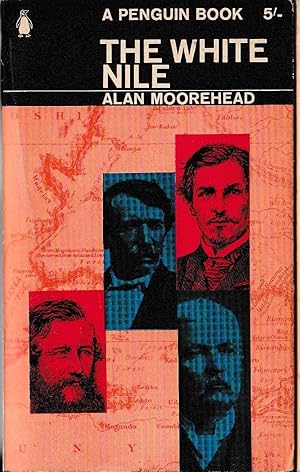

That December, suffering from headaches, he went into London's Westminster Hospital for an angiogram which precipitated a major stroke. There he had completed a television script for his manuscript "Darwin and the Beagle", but tragedy struck before the book was published. In 1966, Moorehead and his wife, younger son and daughter ( Caroline Moorehead) made what became for him the first of an annual series of visits to Australia. The presentation of the latter was made by Sir Winston Churchill on 28 November 1956. In England, the book won the Sunday Times thousand-pound award and gold medal was the first recipient of the Duff Cooper Memorial Award.

In 1956, his book Gallipoli about the Allies' disastrous First World War campaign at Gallipoli, received almost unprecedented critical acclaim (though it was later criticised by the British Gallipoli historian Robert Rhodes James as "deeply flawed and grievously over-praised"). The hefty but unputdownable African Trilogy, still in print today, is perhaps the best example of Moorehead's characteristic virtue as a war correspondent: he could widen the local story to include its global implications." And James further affirmed, "His copy was world-famous at the time and has stayed good he was a far better reporter on combat than his friend Ernest Hemingway." Moorehead's 1946 biography of Montgomery also remains well considered – "Moorehead was well able to see – as Wilmot calamitously didn't – that Eisenhower was Montgomery's superior in character and judgment." According to the critic Clive James, "Moorehead was there for the battles and the conferences through North Africa, Italy and Normandy all the way to the end.

He was twice mentioned in despatches and was appointed an Officer of the Order of the British Empire. ĭuring World War II he won an international reputation for his coverage of campaigns in the Middle East and Asia, the Mediterranean and Northwest Europe.

He married Lucy Milner, who at the Daily Express in 1937 "presided over a women's page free of the patronising sentimentality which marked much writing for women at the time". Writer, world traveller, biographer, essayist, journalist, Moorehead was one of the most successful writers in English of his day. He travelled to England in 1937 and became a renowned foreign correspondent for the London Daily Express. He was educated at Scotch College, with a Bachelor of Arts from the University of Melbourne. Australian-born, he lived in England, and Italy, from 1937.Īlan Moorehead was born in Melbourne, Australia. Alan McCrae Moorehead, AO, OBE (22 July 1910 – 29 September 1983) was a war correspondent and author of popular histories, most notably two books on the nineteenth-century exploration of the Nile, The White Nile (1960) and The Blue Nile (1962).


 0 kommentar(er)
0 kommentar(er)
